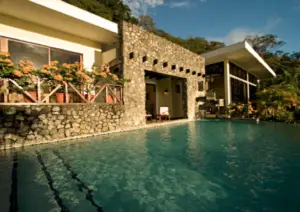Taking a Look at the State of Costa Rica’s Real Estate Market

Costa Rica is known the world over as a major ecotourism destination. It is also famous for its pleasant climate and relatively untouched beaches. The country also lures many from around the world to stay; it has been attracting expatriates for years because of its low cost of living, political stability and beauty. Let’s take a closer look at the state of the Costa Rica real estate market.
The Attraction of Costa Rica
One of the major attractions is the availability of attractive, affordable real estate even for foreigners. Costa Rica treats foreigners the same as nationals when it comes to real estate purchases.
Costa Rica’s central valley has attracted expats and locals for years. It has a spring-like climate year-round; the elevation means that daytime temperatures are in the eighties while nighttime temperatures are in the sixties. The area is centrally located; you can take a short trip to the mountains or drive an hour to the coast. And the large community of expats makes it easy for newcomers to settle in. The area is home to roughly two thirds of the country’s population, so you can find everything from world-class medical facilities to movie theaters and restaurants for a night on the town.
Lake Arenal is located three hours northwest of San Jose, Costa Rica’s capital. The area has long been attractive to eco-tourists; it draws an increasing number of expatriates to stay. The large number of properties with panoramic lake views is just one of the reasons why. It also features a year-round spring-like climate.
Real Estate Taxes

Costa Rica doesn’t have much of a property tax, which is another plus. Depending on where the property is located, it may be due quarterly, semi-annually or annually. For properties worth more than 126 million colones, an additional luxury tax is applied.
The National Registry records real estate purchases and ownership. Costa Rica follows the “first in time, first in right” doctrine, and this can create issues with liens, easements, mortgages and boundary lines for a piece of property. When you register the property, a tax imposed by the Registry itself is due. On top of this, a property transfer tax must be paid by the buyer of the property.
All of these costs are aside from what you may spend to get telephone service installed or updating a property. Buyers looking to increase their property’s home value can find many options for updating the home’s plumbing on sites like Kitchen Faucets Hub.
Legal Status for Expatriate Real Estate Owners
If you become a resident, you can stay in the country longer than ninety days at a time. If you don’t establish legal residency, you’ll only be able to visit on a tourist visa good for up to ninety days.

Most people who buy a second home choose Pensionado or Rentista status. Pensionado status is essentially for pensioners; you have to show monthly income from a pension or government retirement benefits like Social Security of at least a thousand dollars per month. Rentista status requires demonstrating that you have a sufficient monthly unearned income, though this could be from savings, interest or dividends. Another way to qualify as a Rentista is to have a significant amount of money deposited to a Costa Rican bank with the approval of immigration authorities.
Costa Rica’s real estate market is going strong. It attracts expatriates because of its low prices and favorable laws permitting foreign ownership of property.
- Advertisement -
